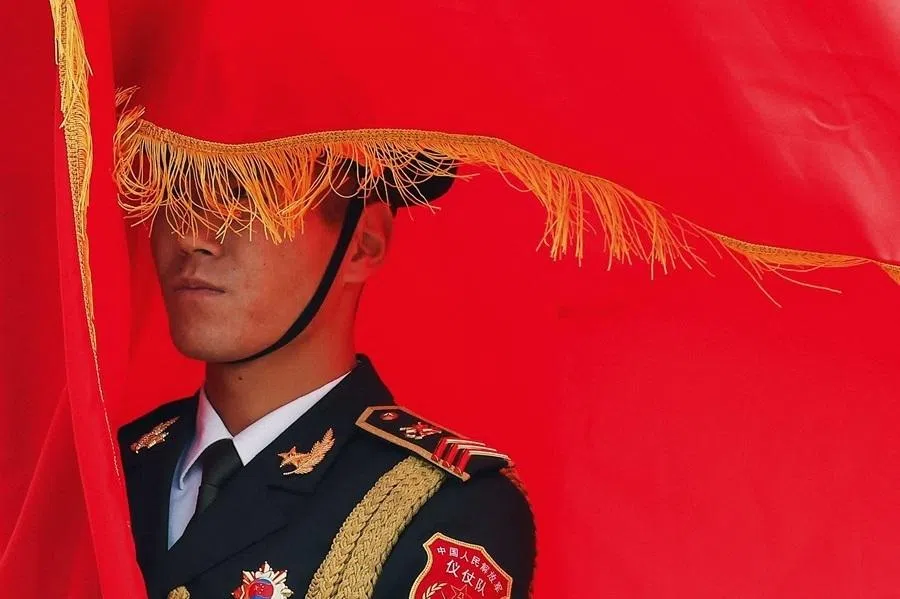Lessons from Xi'an: Why there is no one-size-fits-all solution to Covid-19
China's insistence on a zero-Covid strategy puzzles many but Han Yong Hong believes that the country may have little choice. She explains China's unique circumstances and the challenges it faces.
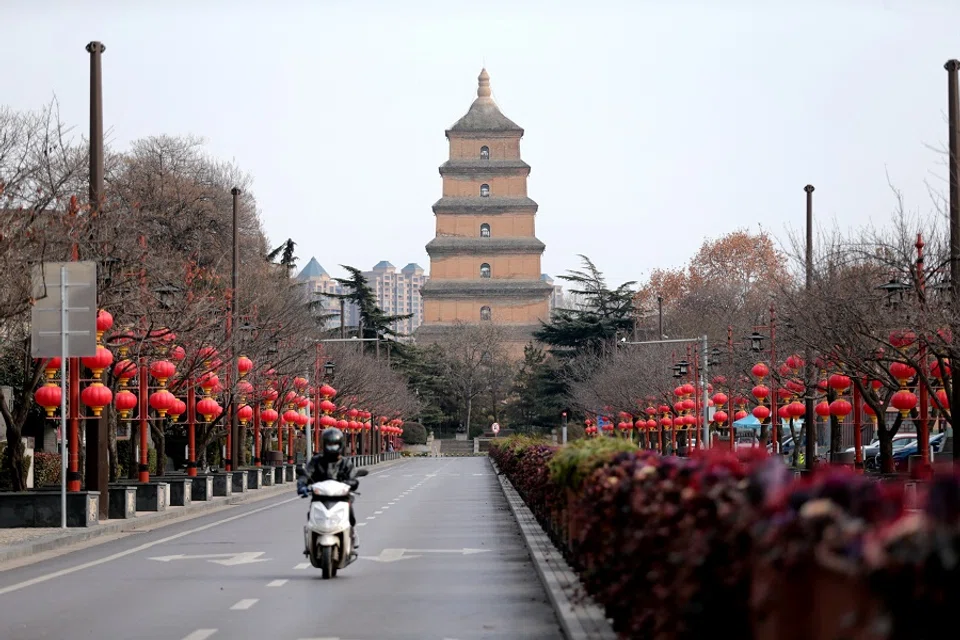
At the turn of the year, another Chinese city with a population above ten million is facing the trials of lockdown.
On 23 December 2021, the ancient capital of Xi'an was closed off. This led to some absurd and even bizarre occurrences: residents not being able to buy groceries, people starving, a young man beaten up for buying steamed buns, a pregnant woman losing her baby after failing to enter a hospital due to Covid restrictions, the pandemic control health app "One Code Pass" crashing...
Compared to Wuhan two years ago, the situation in Xi'an is certainly not as bad. But it is precisely because Xi'an has so many precedents to learn from that the disarray and unpreparedness on display seems incomprehensible. No wonder netizens have taken to the internet to berate Xi'an.
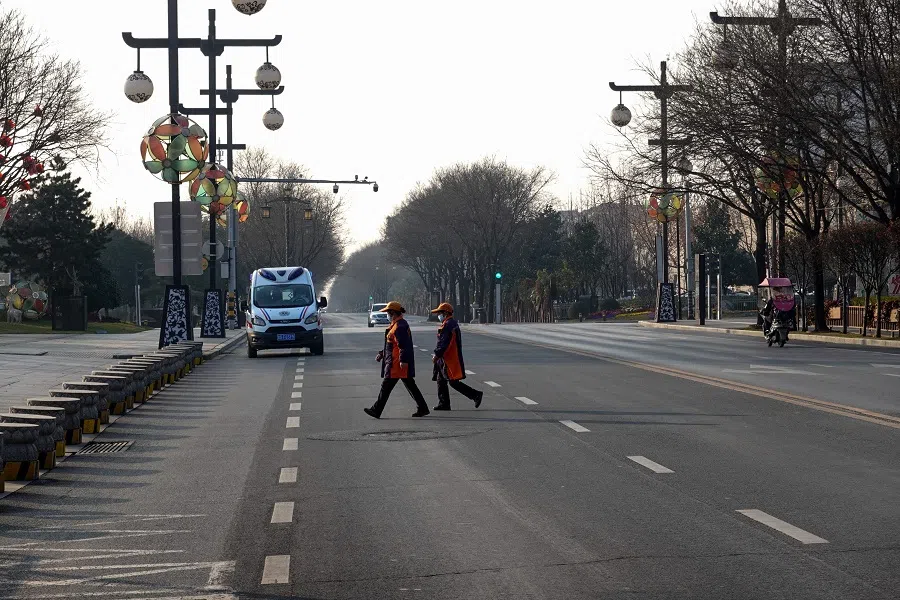
In the main, China has done well to contain the pandemic. For a long time, new daily cases were kept within 100; even at the peak of the current wave, the highest number of new daily cases reported was 231 on 31 December 2021. Compared to the million over new Covid-19 cases reported on 3 January in the US or France's seven-day average of more than 100,000 cases, the number of confirmed cases in China is indeed insignificant. But China still opted to implement the harshest measure of a lockdown which not only confounded the West but drew flak from its nationals, who complained about the officials' amateurish and crude epidemic prevention and control measures. Some even suspect that the ongoing zero-Covid policy is an excuse for the government not to let people travel abroad.
...it inadvertently highlighted the problems of a prolonged zero-Covid policy, namely that it is increasingly difficult to contain the pandemic in its early stages.
However, the experts believe that Xi'an's predicament is serious. Epidemiologist Zeng Guang observed that Xi'an's situation is the most serious in China since Wuhan as it is caused by the Delta variant which spreads much faster. He added that China has much experience controlling the pandemic after discovering it in the early stages. But in the case of Xi'an, the situation spun out of control almost immediately. How can the country nip the spread in the bud at the very start? He hopes that Xi'an will be a new case study to learn from and cautioned that what happened to Xi'an could yet happen in other cities.
While Zeng's comments were intended to cut the Xi'an government some slack, it inadvertently highlighted the problems of a prolonged zero-Covid policy, namely that it is increasingly difficult to contain the pandemic in its early stages. Does this mean that China might abandon the zero-Covid policy and turn towards living with the virus? Maybe not.
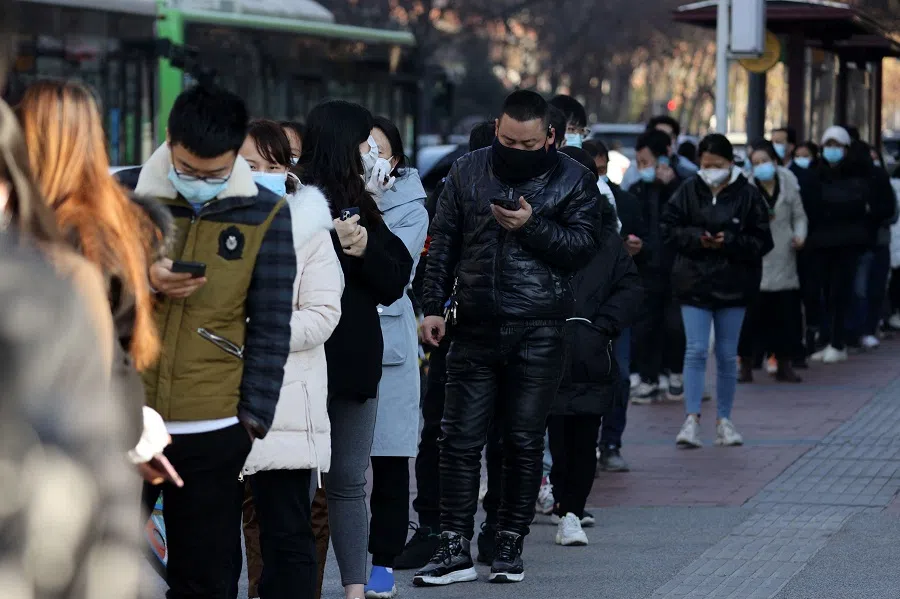
Over the past year, China has always professed that it adopts a "dynamic zero-Covid" policy; that is, it spares no effort in taking immediate steps to stop spread in the community. For example, as soon as Covid-19 cases are discovered in a neighbourhood or at Disneyland, the compound is immediately sealed, nobody is allowed to leave, and everyone is required to take a nucleic acid amplification test. Rules of entry into the country are also extremely strict. Under such airtight measures, China succeeded in keeping the number of outbreaks and deaths within its borders extremely low, and the Chinese people were even allowed to gather without wearing masks, an example of being strict on the outside but relaxed within.
Xi'an's messiness could be viewed as a hint of China's helplessness in doggedly staying with the zero-Covid policy. It really sticks out like a sore thumb.
Hobson's choice to stay with the zero-Covid policy
But this rosy picture is but a political expedient because as long as the Covid-19 coronavirus exists, it will attack the country from all directions once China reopens and returns the country to pre-pandemic times. In that sense, the zero-Covid policy is just an attempt at postponing these risks. Not to mention that as more countries choose to live with the virus and reopen their borders, China may become isolated, and economic recovery would be more challenging. However, the messy situation in Xi'an lays bare the huge differences in governance capabilities across China. How many other regions are weak and may not be able to pass the test? If China goes on the path of living with the virus, would a large-scale outbreak occur and result in a terrifying situation? Xi'an's messiness could be viewed as a hint of China's helplessness in doggedly staying with the zero-Covid policy. It really sticks out like a sore thumb.
This week, American political risk consultancy Eurasia Group listed China's zero-Covid policy as the world's top geopolitical risk of 2022. Eurasia Group President Ian Bremmer predicted that while the pandemic will become "endemic for advanced industrial economies by the end of the first quarter", the "initial success of zero-Covid and Xi's personal attachment to it makes it impossible to change course". He thinks that in the face of the "newly dominant and highly transmissible Omicron variant", China will require "more severe lockdowns" which in turn leads to "greater economic disruptions, more state intervention, and a more dissatisfied population at odds with the triumphalist 'China defeated Covid' mantra" until China can roll out "domestically developed mRNA shots and boosters across the population".
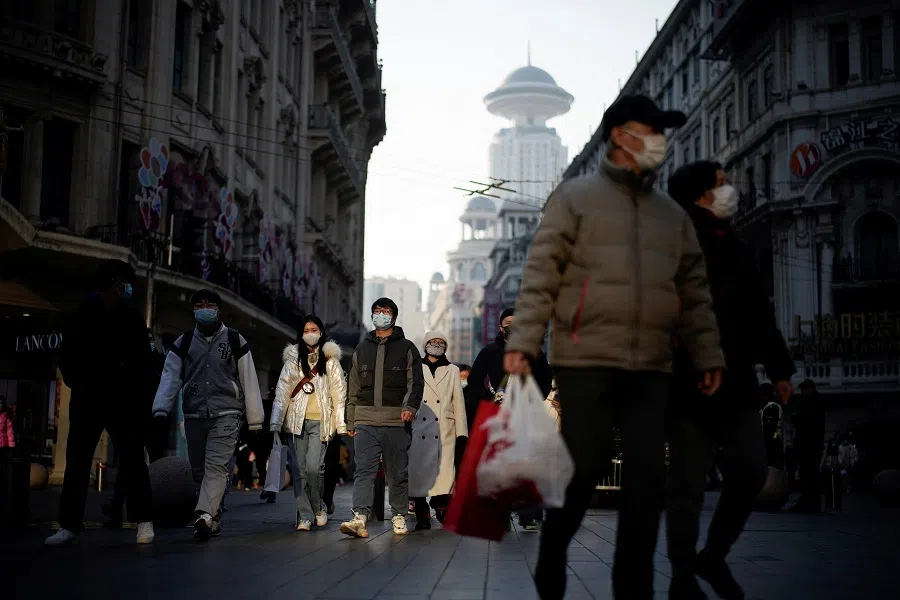
Bremmer's report was met with a quick rebuttal from China - an article claiming that the US's laissez-faire "lie flat" (躺平) attitude towards the pandemic was the greatest geopolitical risk of the year.
...the countries are looking at pandemic containment as a battle between the Chinese and American systems and an ideological battle...
Pandemic policies as a test of systems
With the US and China throwing arguments back and forth, it seems like China-US confrontation is the biggest geopolitical risk facing the world instead.
While the arguments are certainly not without merit, they still seem harsh as the countries are looking at pandemic containment as a battle between the Chinese and American systems and an ideological battle. Political leaders of China and the West are also asserting their system's superiority, whether intentionally or unintentionally, to prove that they can better protect the people's health, lives and human rights.

However, apart from the system of governance, factors such as geographical, economic and social, historical and cultural conditions also affect the effectiveness of a country's approach. Each state has its own unique set of challenges which render comparisons unmeaningful. For example, China's healthcare system is underdeveloped and the Chinese have deep fears about sickness and death, hence the zero-Covid policy. On the contrary, Western culture values individual rights, which explains why the authorities are at a loss when many Americans refuse to get vaccinated.
Making epidemic prevention and control measures more humane and targeted is a big challenge facing Chinese officials. But it is an even bigger problem to exit from the zero-Covid policy. In light of the imminent Winter Olympics in February and the Chinese Communist Party's 20th Party Congress in autumn, China cannot afford to make any mistakes. Does this mean that the stringent external pandemic control measures will be maintained for another year? The Chinese president has not left the country for two years; how long will this situation last? The great test of the pandemic is not over and the last leg of the journey to the finish line is most crucial. During the process, each country has to sketch out their exit plans. We can study their plans, but we cannot copy their answers. The results are also our own to bear.
Related: Chaos in Xi'an: From zero-Covid to 'zero cases in communities' | China's zero-Covid regime: My home quarantine experience in Beijing | When Beijingers can't return home: Is China going overboard with its zero-Covid measures? | Singapore health experts: China the best positioned country to aim for zero-Covid | Why China is determined to achieve 'zero-Covid' | Is China taking policies to the extreme to achieve zero-Covid?



![[Big read] When the Arctic opens, what happens to Singapore?](https://cassette.sphdigital.com.sg/image/thinkchina/da65edebca34645c711c55e83e9877109b3c53847ebb1305573974651df1d13a)

